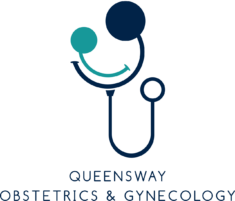Constipation in Pregnancy
Constipation is common during pregnancy, especially near the end of pregnancy.
- The hormone production that happens during pregnancy will slow down the movement of the large intestine.
- The growing baby also puts pressure on your body, which will slow your intestines further.
- Slow intestine movement will increase the number of days between bowel movements.
- It also will cause your body to absorb more water, making your bowel movements small and hard.
Recommendations for constipation relief
1) Getting enough fibre
- Eating more foods with fiber can help fight constipation
- Fiber is found in fruits, vegetables, whole grains, beans, nuts, and seeds. You should aim for about 25-30 grams of fiber in your diet each day. Good sources of fiber include beans, chickpeas, lentils, raspberries, split peas, whole-wheat pasta
- Check the labels on packaged foods and choose higher-fiber options if possible.
- If you have not been getting your 25-30 grams a day, increase the amount of fiber you eat a little each day. Drink a lot of water as you increase your fiber intake.
- You can also add in fibre supplements e.g. Metamucil, psyllium husk
2) Increase water intake: drink at least 8 glasses of fluids a day.
3) Don’t wait to use the bathroom: when you feel a bowel movement is coming, try your best to get to a bathroom right away; waiting may make the symptoms worse.
4) The use of stool softeners may help e. g. Restoralax daily at nighttime. You can get this over the counter at any pharmacy.
5) Exercise routinely: aim for 20-30 min x 3 days a week
- It is important to keep your body moving to lower your risk for constipation
- If you have been not been very active, start doing mild exercises, like walking and swimming.
- Start with 5 minutes and slowly increase the amount of time you spend exercising to 30 minutes a day.
- During your exercise you should be able to carry a normal conversation.
- Drink lots of water before, during and after physical activity.
- Weight training is generally safe as long as the resistance is light to moderate.
6) Taking iron supplements can be constipating. Consider taking your iron supplement every other day.
Hemorrhoids
Pregnant women often have hemorrhoids—painful, itchy varicose veins in or around the anus. Varicose veins are swollen, twisted veins often caused by poor blood flow. They can also be caused by constipation/straining hard while having a bowel movement. Hemorrhoids usually get worse right after delivery, then slowly get better during the postpartum period.
Recommendations for hemorrhoid relief
- Recommendations for constipation relief above +
- Get up and move around to take weight off the veins of your pelvic area. Sitting for a long time puts pressure on these veins
- Apply an ice pack or witch hazel pads (e.g. Tucks Pads) to hemorrhoids. Witch hazel helps relieve pain and reduce swelling
- Use a foot stool to decrease straining
- Try soaking in a warm (not hot) tub a few times a day
Adapted from: Partners in Pregnancy clinic, American College of Obstetricians and Gynecologists, American Pregnancy Association
Cant find something?

